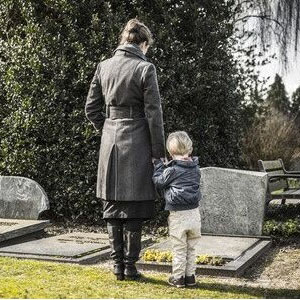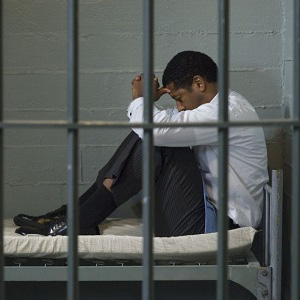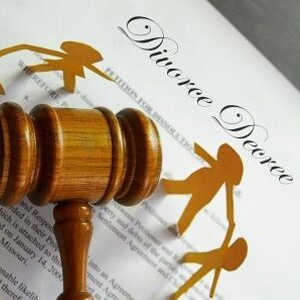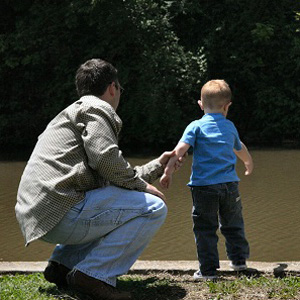
Dying without a valid will is also known as dying intestate. This means that you have not specified the beneficiaries who will receive your assets after your passing. In New Jersey, intestate laws exist to handle this type of case. If you die without a will, most of your assets will go to your closest relative. If you are married, this is your spouse. If not, the next in line is your children, and beyond them, your parents and finally, your siblings. Under New Jersey’s intestate laws, more than one of these individuals or groups can collect a portion of a deceased individual’s estate. Other types of property are not subject to intestate laws and are instead administered to their co-owners or named beneficiaries. Familiarize yourself with New Jersey’s intestate laws to gain an understanding of how they might affect…Read More

If you have a criminal conviction on your record, you could potentially have that charge removed through a process known as expungement. When you expunge a conviction from your criminal record, it is not removed from your record completely. Rather, it is “hidden” so potential employers, landlords, and others who might make a judgment about you based on your criminal record can not see that you have previously been convicted of a crime. Expunging your record gives you the privilege testifying that you have never been convicted of a crime on school applications, in court, and during an interrogation. Not all convictions can be expunged. Similarly, expunging your record does not prevent all employers from accessing your public record – if you apply for a law enforcement or corrections job, you need to disclose your conviction history to your prospective…Read More

Child custody is not determined through one quick decision. To make sure that a child’s needs are met after his or her parents’ divorce, the court examines a variety of factors present in both parents’ lifestyles to determine the best custody arrangement for the child. This process can take a considerable amount of time and involve multiple types of data about the parents. One type of data is each parent’s psychological profile. A psychological profile is an understanding of how an individual relates to others. It is a combination of his or her attitudes, values, expectations, and communication and parenting styles that show his or her fitness as a parent. As part of the child custody determination process, the court might require that each parent undergo a psychological evaluation. What Does A Psychological Evaluation Entail? Generally, it involves individual interviews…Read More

Contact the Division of Child Protection and Permanency (DCPP) immediately to report the suspected abuse. If your child is in danger, you need to get him or her out of that household immediately. Any time you involve law enforcement or DCPP in your custody case, notify your attorney. If do not accuse your former partner of domestic violence until you have sufficient evidence to do so and have discussed this evidence with your attorney. A false allegation of domestic violence can reflect poorly on you in future interactions with the court. Violating Your Custody Arrangement To Protect Your Child The suspicion of domestic violence is the only reason you can legally violate certain restrictions of your child custody agreement. For example, your custody agreement might state that you are only to spend time with your child every other weekend and…Read More

It absolutely can. How much your criminal record can affect your child custody arrangement depends on a few factors. These factors are as follows: The type of offense The number of offenses The victim of your offense The age of the offense The purpose of a child custody arrangement after a divorce is to promote a consistent, safe relationship between the child and both of his or her parents. The choices and restrictions the court makes for a family’s custody arrangement are made with the child’s best interest in mind. The most important concern when a parent has a criminal record is how this criminal history can affect his or her child. Recent offenses, violent offenses, and offenses that involve the child or another child can have a much more significant impact on an individual’s custody arrangement than older and…Read More

There are a lot of ways to end your marriage. One way is through the traditional divorce litigation. Another is through mediation, which takes the couple out of the courtroom and allows them to work with a neutral third party to develop a satisfying divorce settlement. A third option is collaborative divorce. This option, like mediation, takes place outside the courtroom. Unlike mediation, the process of determining the terms of the couple’s divorce does not involve a third party. With collaborative divorce, the couple works together to determine their divorce settlement, then files the settlement with the court. Collaborative divorce can be an attractive option for couples who had fairly amicable relationships. Indeed, it can be. But there are also cases where collaborative divorce is not the best option. Before you decide to divorce through collaborative law, discuss your options…Read More

Possibly. It depends on your child’s age and maturity level. If your child expresses a desire to live with one parent or the other after your divorce, the main question the court will ask is “why?” If the court determines that your child has the capacity to make an informed, rational decision about where he or she should live after your divorce, it may allow your child’s preference to play a role in determining his or her custody arrangement. Usually, the court considers opinions of adolescents. But even adolescents sometimes have poor reasons for wanting to live with one parent or the other, such as one parent having more relaxed household rules. Another issue that the courts consider is that one parent might be heavily encouraging the child to express a preference for living with him or her. This is…Read More

When you are working through the process of determining child custody with the court, keep in mind that not all custody arrangements give both parents custody of the child. In many cases, one parent is named the custodial parent and the other is given parenting time with the child. Parenting time is a regularly-scheduled time for the parent and the child to spend together. Except for in cases where there is a significant threat to the child’s wellbeing, it is important for a child to maintain a relationship with each of his or her parents as he or she grows up. If the court feels that there is an element present in the noncustodial parent’s household or lifestyle that puts the child in danger, it could require that the parent’s visits with the child be restricted in some way. This…Read More

Drug addiction hits families hard. As anybody with a family member who is battling addiction knows, there is no way to help an addict unless he or she wants to be helped. When a loved one does get help for his or her disease, whether that help is completely voluntary or following a conviction, he or she faces years of difficulty getting and staying clean. Overcoming a drug addiction is physically and emotionally exhausting and can involve years of therapy, lifestyle changes and sometimes, relapses. Although you want to help your loved one overcome his or her struggles, you might not know how. The following tips can help you to help your family member reach his or her recovery goals. Encourage Him Or Her To Participate In Support Groups Various groups, such as Alcoholics Anonymous (AA) and Narcotics Anonymous (NA)…Read More

In most of the United States, minor criminal acts are called misdemeanors and major criminal acts are called felonies. This is not the case in New Jersey. In New Jersey, minor offenses are categorized as “disorderly persons offenses” and major offenses are known as “crimes” or “indictable offenses.” Although disorderly persons offenses are a lower level offenses than indictable offenses, they can carry serious penalties for those convicted. Penalties for a disorderly persons conviction can include fines, restitution, community service, and in some cases, a short jail sentence. No matter what type of offense you are charged with committing, it is important that you work with an experienced criminal defense attorney to represent your case and your interests in court. Examples Of Disorderly Persons Offenses Harassment Simple assault Possession of a small amount of marijuana Lewd behavior Underage drinking or…Read More
